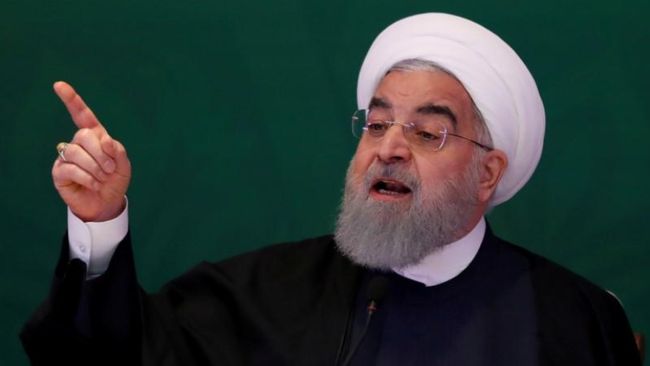Jakarta, CNBC Indonesia – After the Chinese government under President Xi Jinping which banned trading and mining activities in China, now it is the turn of the Iranian government to also announce a temporary ban on Bitcoin mining and cryptocurrency others on Wednesday (26/5/2021).
The reason, officials called the activity “wasteful” of energy and led to blackouts in several cities in Iran.
“The ban is effective immediately and will be enforced until September 22,” Iranian President Hassan Rouhani told state TV, as quoted by CNBC Indonesia, this Thursday (27/5).
This move is an attempt to reject the Iranian government against the popular digital currency.
Prior to Iran, Xi Jinping’s government was tough on crypto in addition to China wanting to create its own digital currency.
Massive selling has continued since last week in the crypto market after the crackdown by the Chinese government. On Friday last week, China banned financial institutions such as banks and fintech payment to provide crypto money transaction services.
China also reminded investors not to trade speculative cryptocurrencies. At the end of last week, China added to the blow by claiming it would issue new rules to crack down on cryptocurrency miners and trading.
Suddenly, this news caused the Bitcoin crypto currency on Sunday’s trading (23/5/2021) to experience a decline of 16%. According to Coin Meters data, the Mother of Crypto fell to US $ 31,772.43 (Rp. 455 million) after Friday was at the level of US $ 35,891 or Rp. 515 million.
Plus, Elon Musk, owner of the electric car factory Tesla and one of the richest people in the world, also took issue sustainability aka the continuity of mining and Bitcoin transactions in the world. In fact, he decided to stop buying Tesla using Bitcoin.
Musk in his statement mentioned the concern that Bitcoin causes the use of fossil fuels to increase rapidly. He also alluded to data from researchers at Cambridge University that showed a surge in Bitcoin electricity use this year.
One more thing, the Government of US President Joe Biden is also tough on illegal Bitcoin miners. The US Treasury Department said it would request reports on crypto transfers with a nominal value of more than US $ 10 thousand, like cash transactions.
Power outage
Furthermore in Iran, namely in Tehran, the capital of Iran, and Several other large cities have faced several daily power outages over the past few months. Officials have blamed it on shortages of natural gas and a prolonged drought that has crippled hydroelectric power in the country.
Crypto mining adds to the problem. What’s more, 85% of Bitcoin mining in the country is done illegally.
This prompted a nationwide crackdown on the miners as the activity ended up disrupting several medical facilities. This makes it difficult for health facilities to run refrigerators to store Covid-19 vaccines.
In January, Iranian police seized nearly 50,000 Bitcoin mining machines using subsidized electricity illegally. According to state-owned electricity company Tavanir, the miners consume 95 megawatts per hour at a low rate subsidized by the state.
The cryptocurrency, which once hit record high prices in April of over US $ 63,000 (Rp. 900 million) per coin, has come under fire lately for the energy-intensive production behind its production and consequently environmental costs.
Bitcoin miners use specially made computers to solve complex mathematical equations that effectively enable crypto transactions. However, this whole process takes a lot of energy due to the amount of power used by the computer.
Tehran previously permitted cryptocurrency which is mined in Iran to pay for imports of goods, which could help it overcome broad US sanctions. Iran’s central bank prohibits trading in cryptocurrencies that are mined abroad, although these can be found on the black market, according to Iranians living in the country.
About 4.5% of all Bitcoin mining globally took place in Iran between January and April this year, according to blockchain analytics firm Elliptic. That places it among the top 10 in the world, while China is in first place with almost 70%.
(bag bag)
– .


